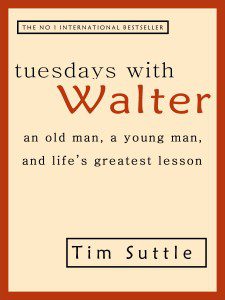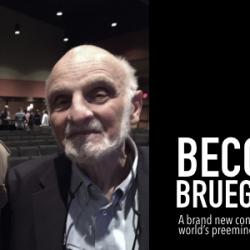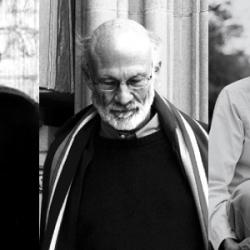- Reality: We have been enculturated, all of us – claimed by our culture and traditioned by it. Even for the church, the culture is our tradition.
- Cause: Why are we enculturated? Because we have abandoned the Christian tradition, and thus experience a full (or nearly so), loss of Christian identity (we don’t know who we are so we think of ourselves as Americans).
- Tension: The church cannot reverse this trend by trying to attack the culture. The church can only escape our enculturation by re-learning the traditions of the Christian faith (starting with the prophetic tradition).
- Paradigm: What WB recommends is not a model for ministry, but a paradigm. 1) we immerse ourselves in the traditions of our faith, especially the tradition of the prophets. 2) We crash the tradition into the culture through our lives (literally through our very bodies). That’s the prophetic imagination.
Chapter Two: The Royal Consciousness
God is Free. This means that God cannot be co-opted by any church, religion, or especially any government. The Story of King Solomon is a story about how the culture that Solomon was building attempted to co-opt the God of Israel for the Royal projects. God does not belong to us.
The moment you co-opt the God who is free, this God organizes against you.
This is bad news for evangelicals and liberals.
- Evangelicals: The Christian right’s attempt to gain political power through elections is fatally flawed because as soon as they gain power over a city, state, or country in God’s name, God will organize against them. Why? “the vision emerging from Moses is viable only in an intentional community whose passion for faith is knowingly linked to survival in the face of a dominant, hostile culture.” (23) Vulnerability is a pre-requisite to faithful leadership! You can’t do it from the top of the heap, especially the heap called “American Culture.”
- Liberals: Christian social action cannot co-opt God either. (btw, that is a completely radical statement for most progressive Christians). Control over the social order by left leaning Christians is simply the other side of the coin to the politics of the Christian Right.
God is free & can never be co-opted. It’s easy to trace how Solomon attempted to co-opt much of society for royal use:
- Sex: a harem, 800 wives, self-generated fertility.
- Identity: Solomon changed the organization of Israel, erasing the identity of the 12 tribes, reorganizing them into “tax districts,” which would be sort of like a county. This created “citizens” out of “tribes” or families.
- Bureaucracy: concentrated power in a system Solomon controlled.
- Violence: he created Israel’s first standing army
- Smarts: he collected wisdom & smart people, trying to control information.
- Labor: he created his own personal labor force to build the royal palace & projects.
The result of this six things is that under Solomon, Israel became Egypt! Israel became an empire. Another way to describe the Solomonic project is that Solomon traded:
- Freedom for Security
- Neighbor for servant
- Covenanting for consuming
- Promises for commodities
The result was that Solomon created a society that did not need God for any of its actual needs. All it needed God for was to legitimize the government. That’s what it means to co-opt God. WB says, “Solomon was able to create a situation in which everything was already given, in which no more futures could be envisioned because everything was already present a hundredfold.” (25)
Brueggemann terms this situation “satiation.” Satiation is what he calls a situation in which a people have everything that they need without having to rely on God. When a people are satiated, they are no longer vulnerable because they have created a way to live without reference to God. They don’t need God for anything except to “baptize” their political and societal order, which is to say that they simply baptize their cultural order with a little bit of religion.
The major problem with this situation? If God is behind the government, how do you ever critique it? If “God is on our side,” then how will the church be free to critique the government when it is unjust? The people who suffered as Solomon took their daughters for his harem, lands for his vineyards, sons for his army, workers for his slave labor, wise men for his courts, and even robbed their tribal identity – they had no “god” to which they could appeal. Solomon had a monopoly on God (he co-opted God), and the people couldn’t appeal to God.
Leadership Reflections:
I think it’s safe to say that most of us are enculturated, and we have lost our connection to rich traditions, especially in the evangelical world. Without a strong church tradition that can tell us who God is, who we are, and what it means to follow God, all we have is our culture. Thus our dominant tradition is simply our culture.
Churches routinely co-opt God for their own purposes. We are highly invested in leadership practices in the church that are shot-through with cultural values. Success is the goal (above faithfulness). The megachurch experience is nothing more than an attempt to flee vulnerability through size. We don’t have to rely on God because we have everything we need already. This is satiation, and it is the dominant reality of the American church. Not only that, if satiation is not a reality in a specific church, it is the goal toward which they strive!
Brueggemann says we need to rediscover the prophetic tradition and allow it to define us. Once we become tethered to our rich traditions, we can engage the culture not to destroy and fight it, but to transform it through imaginative engagement.
One of the most important aspects of this comes when Brueggemman says that the traditions of the church should produce in us a passion for God.
“Passion as the capacity and readiness to care, to suffer, to die, and to feel is the enemy of imperial reality. Imperial economics is designed to keep people satiated so that they do not notice. Its politics is intended to block out the cries of the denied ones. Its religion is to be an opiate so that no one discerns the misery alive in the heart of God.” (35)
More next Tuesday!













